I would argue that London is the greatest place on earth if you are a Muslim. The vast metropolis is an eclectic swathe of cultures, communities, faiths and fashions all living together in various states of harmony. Every tribe, tradition, sect and persuasion of Islam is represented in the British capital. From Sunni to Shi‘a, Sufi to Salafi, Ahmadis to Alawis, Brelavis to Deobandis, all shades of belief have a niche in London. Almost every language that is spoken in Muslim societies can be heard, every national costume can be seen, and social custom witnessed in London. There is hardly any political movement, social organisation or evangelical group from across the Muslim world that does not have a base in the city. The spellbinding diversity and heterogeneity of Islam, all Muslim life, can be observed on the streets of London.
Of course, there are also those who shout to attract attention: the members of Hizb-ut-Tahrir, the Muhajiroun, the Jihadi extremists. They distort Muslim reality and perpetuate an undeserving image of the Muslim communities. But turn your gaze away from the tiny screaming minority towards the silent majority and you will see the potential ideal and true spirit of Islam.
I have been documenting Muslims of London for over two decades. As a recipient of a ‘Leaders for London Millennium Award’, I documented the physical landscape and thriving community within the London Borough of Tower Hamlets for the book Common Ground: Portraits of Tower Hamlets (1998). I catalogued the diverse British-Asian presence in youth culture for the 2003 O2 exhibition, ‘Changing Faces’. My long-term project is focused on the lives of Muslims who attend the East London Mosque. An exhibition of my photographs from this project, ‘The East End of Islam’, covering the period 1997 to 2007, was recently shown at London’s Rich Mix Gallery. It contains a range of intimate portraits of the Muslim community at home, prayer and study.
As a documentary photographer, I am primarily concerned with communities in transition. My images examine the relationship between individuals and their environment. I am fascinated with ordinary Muslims, the silent majority, going about their daily lives. Beauty, desire and freedom each feature as a subtle backdrop to my portraits. I hope that my images introduce a contemporary twist on traditional Islamic art.

Anna Birawi, 25, is an MA student majoring in Islamic Law. Her husband, Khalid Birawi, 23, works as a PR executive. They have a young baby, Sulaiman. ‘This quote from the Qur’an sums up my family: O mankind, indeed We have created you from male and female and made you peoples and tribes so that you may know one another (49:13). Thai, Chinese, English, Swiss from me and Palestinian from my husband all came together to create baby Sulaiman, our life, our heart and insha Allah an example to all. To know the other is truly to know yourself. Break those barriers!’
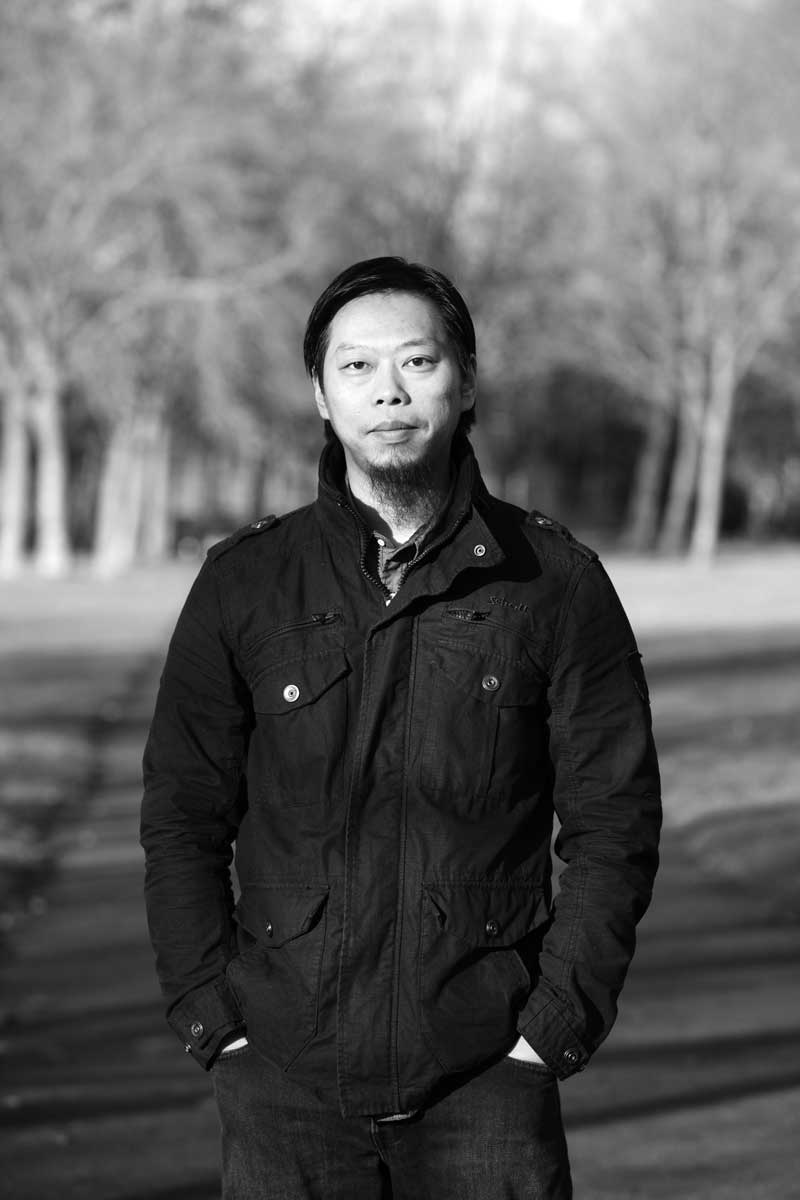
Abdul Haq, 40, was born in the UK to Hong Kong Chinese parents. He works as a nurse specialising in acute medicine. He converted to Islam in 2001. ‘To acknowledge the Divine is to shatter the chains of servitude to the world. Now I am free.’
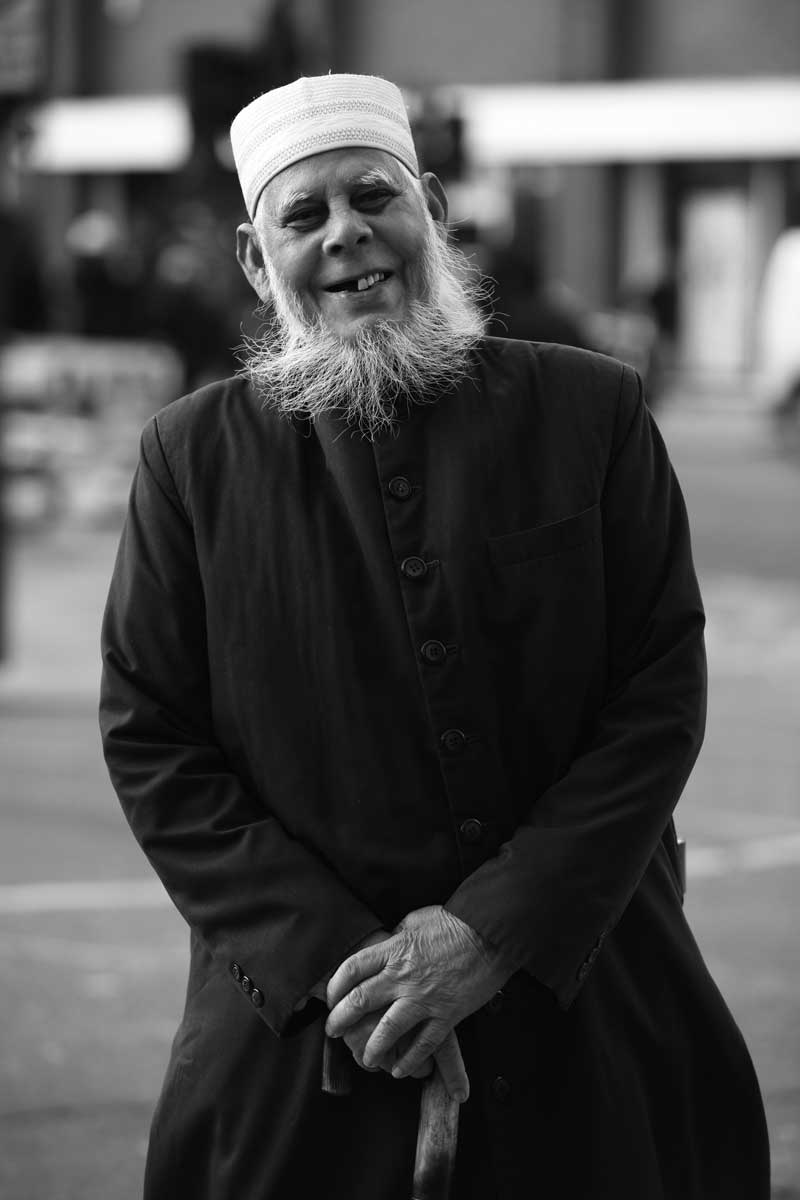
Abdur Rahim, 84, was born in Sylhet in Bangladesh. He is a retired restaurateur. ‘Just prayed Jummah, met so many people on the street. Takes away my loneliness.’
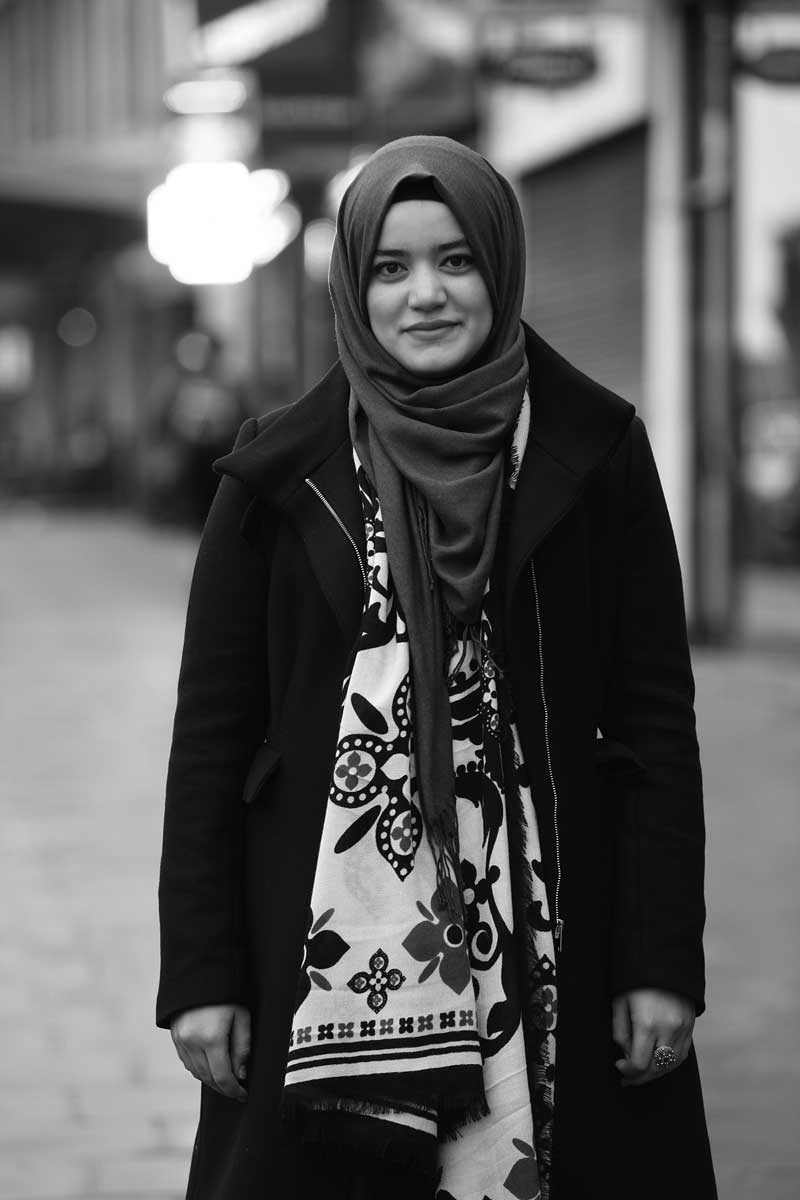
Nusaiba Bungab is a 20-year-old student. Born and brought up in North London, her family is from Libya. ‘I heard Nick Ferrari on LBC, a well-respected radio station with a large number of listeners, discussing Islam and Muslims in such a negative way; and the majority of those who called in were just agreeing with him. It’s so hard to deal with all this constant negativity about Islam and Muslims.’
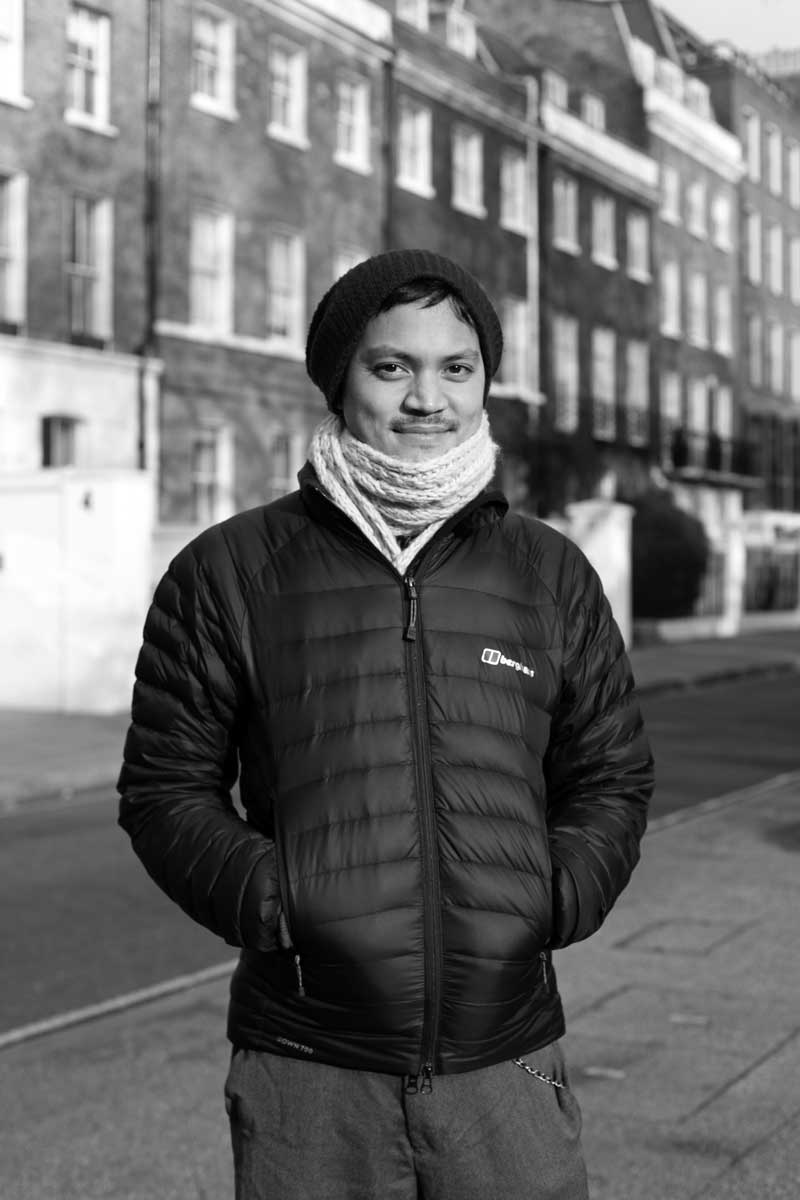
Kamran Khan, 28, is a Project Officer living in North London. ‘My mum was born in Malaysia to a Taoist family and converted to the Baha’i faith in her early teens. She was training to become a nurse in London when she met my dad, a qualified nurse who was from Pakistan. They agreed early on in their marriage that their children would be brought up Muslim and my dad would respect my mum’s faith. When she died unexpectedly in 2011, I drew much strength from Islam but my heart will always be open to the spiritual humanity of Bahaism.’
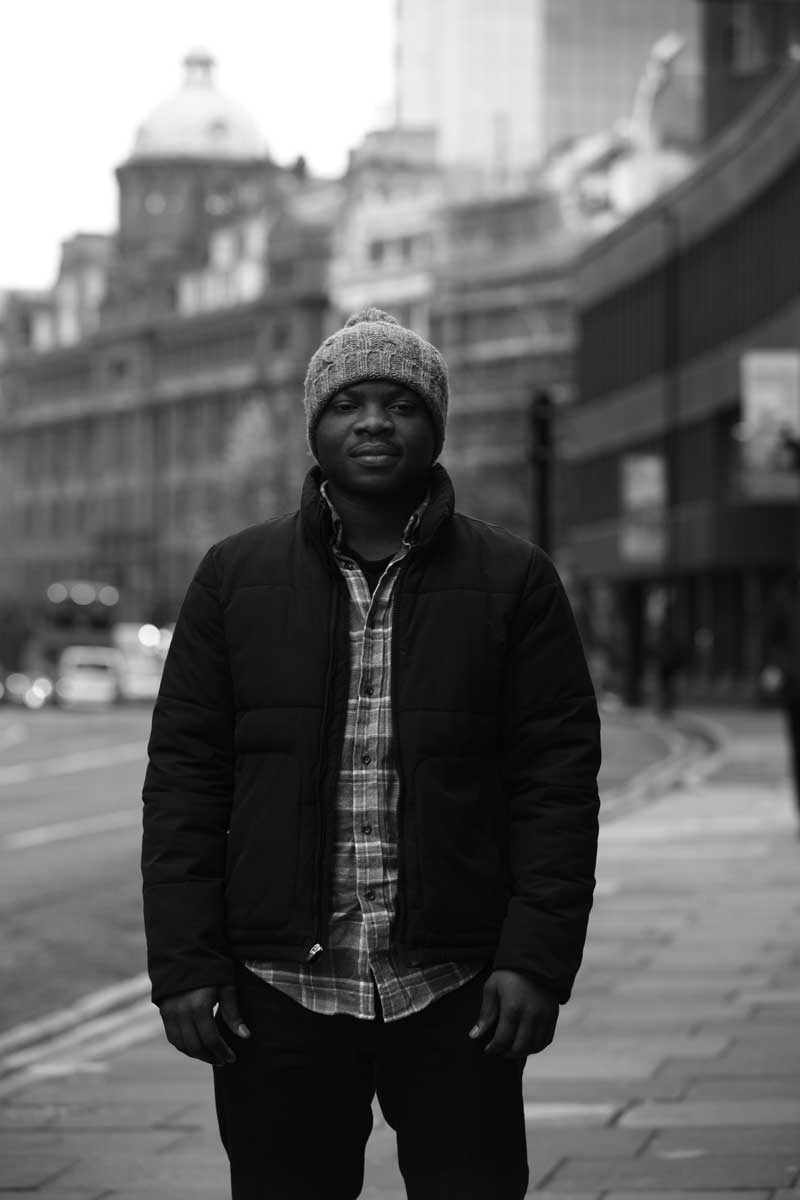
Ibrahim Ologunro, 22, works as a Facilitator. ‘I don’t need religion to tell me what is right from wrong, but I believe I need religion to right my wrongs.’
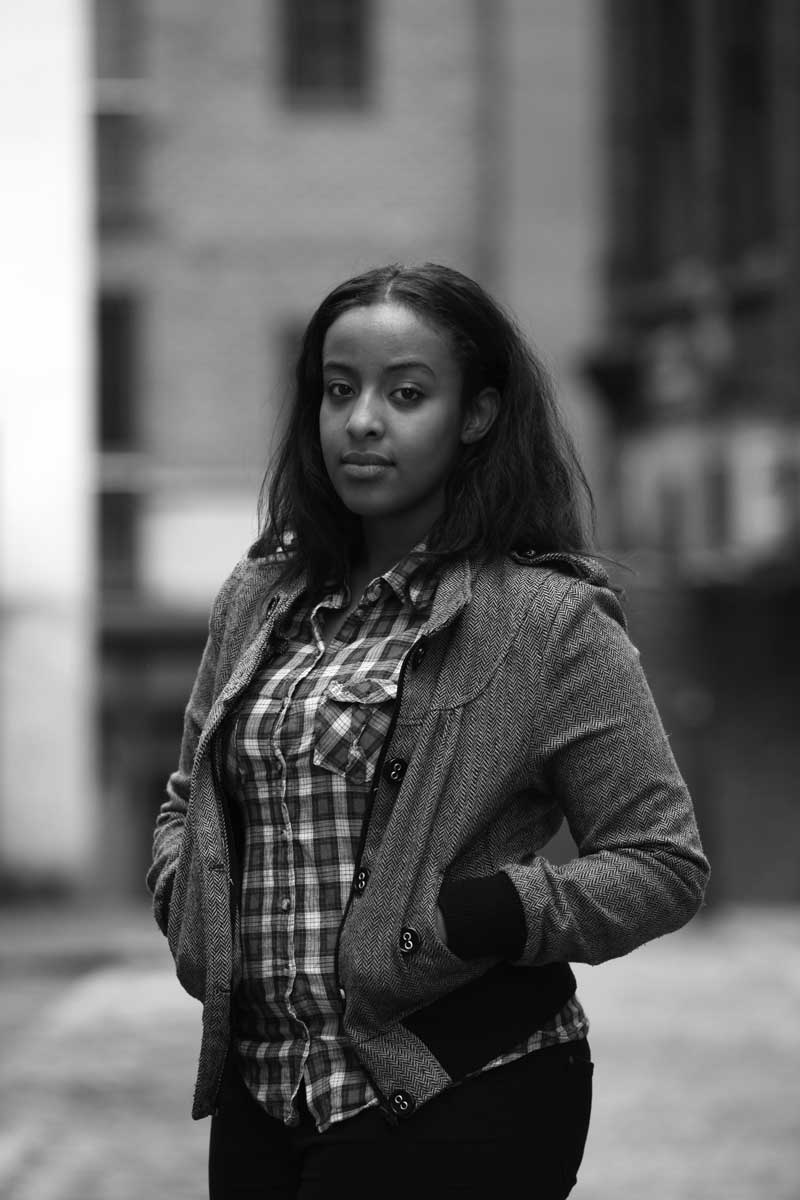
Durga Abdi, 19, works as a Business Executive for a youth development charity. Her parents moved to London from Somalia before she was born. ‘As long as I know who I am, what I want, how to get there, I can walk my own original path.’
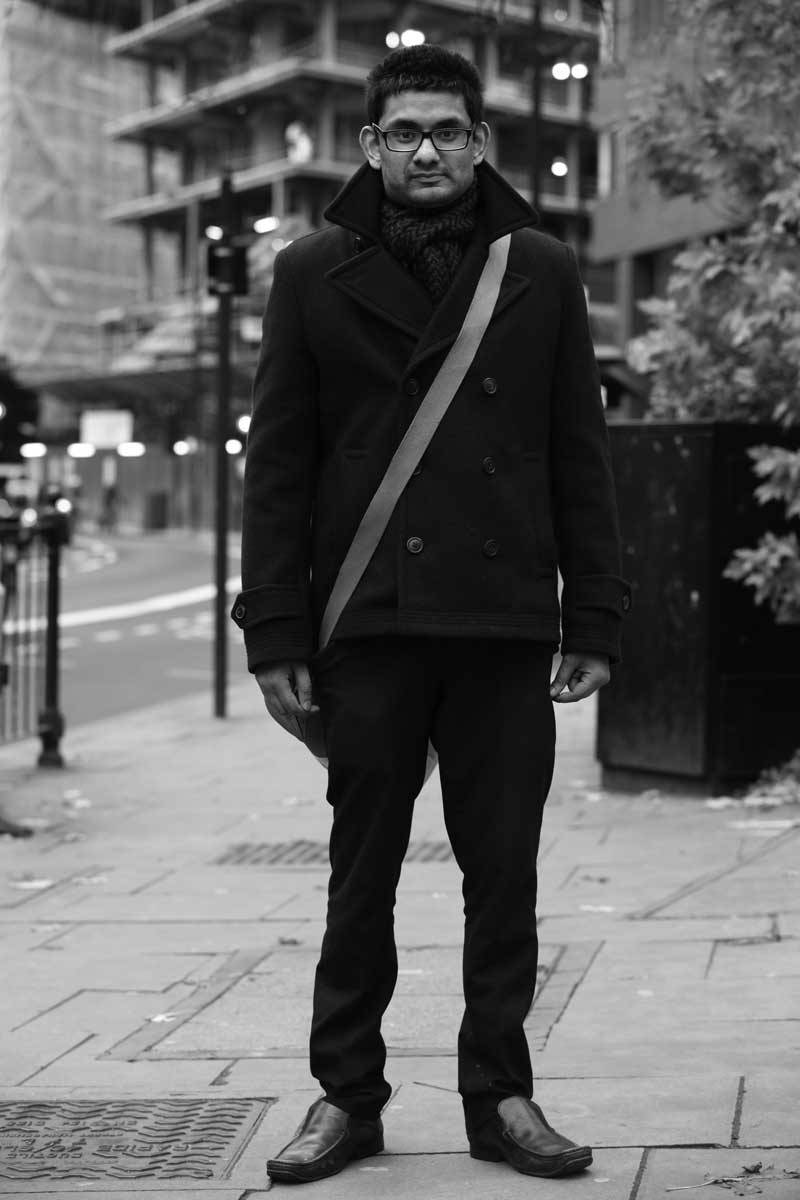
Naheedul Jaigirdar, 26, lives with his Bangladeshi parents. He works in security. ‘Living at home with my parents can be a pain but if I moved out… No wait, I can’t ever imagine moving out. Who would make samosas for me?’
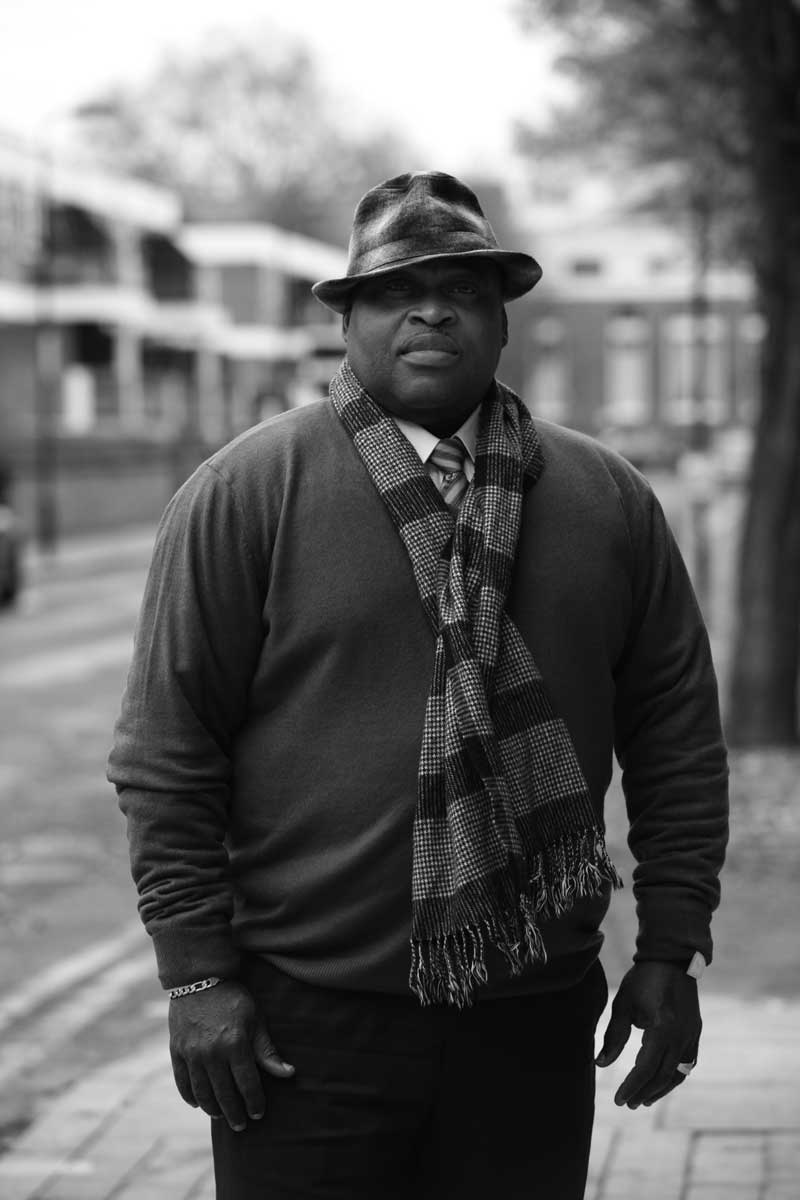
Murisik Adigun, 59. ‘My wife is Christian but her values and morals are more Muslim than any woman I have met before. She has made me promise to take her to Mecca one day. Let’s see if that can happen. In Nigeria, the Muslim and Christian communities get on well most of the time. There is a lot of intermarriage between the faiths. I have been seeing a lot on the news about Boko Haram but really this problem is confined to a part of the north. It’s because of a lack of education and miscommunication among the people.’
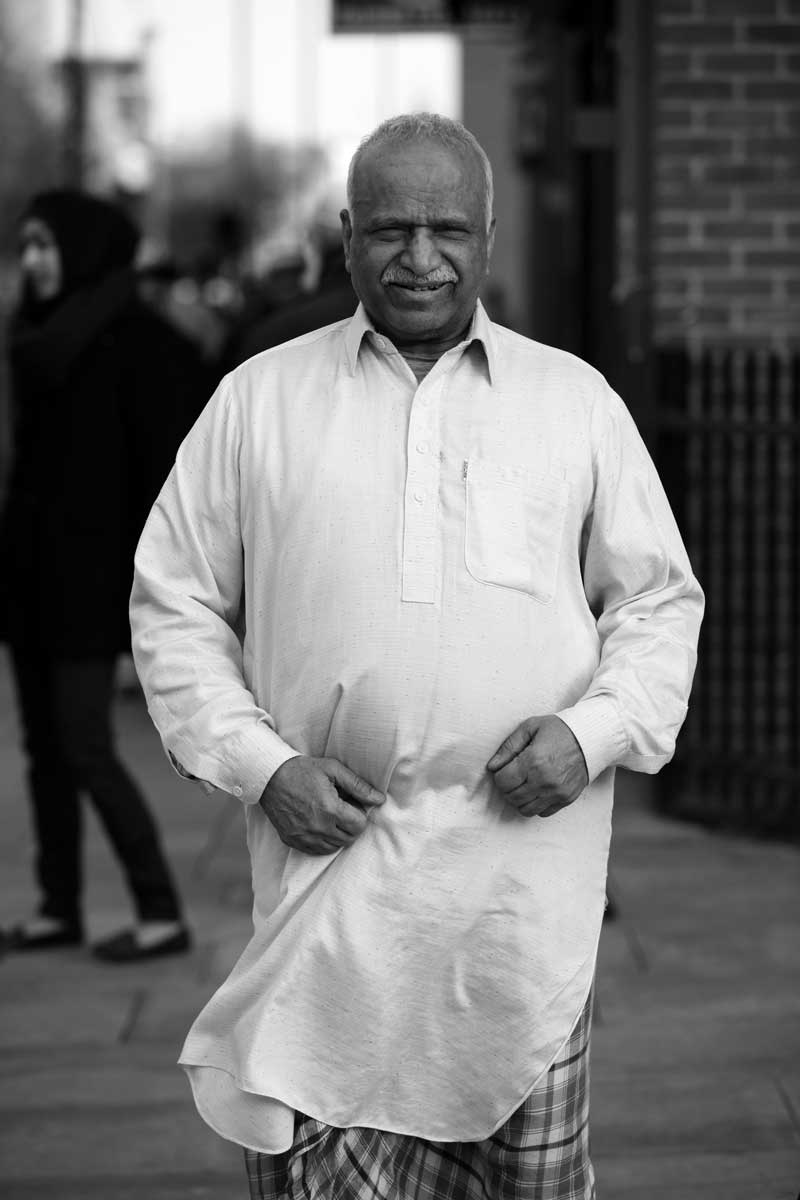
Mohammed Nazir, 66, was born in Lahore, Pakistan. He is now retired. ‘Everything is very good. I had a heart operation. I’m recovered now and can live independently.’

Anjali Chakrabarty, 69, is a retired primary school teacher. She was born in Sylhet, Bangladesh. ‘I’m excited. I can connect to my mother on Skype. I’ve learned new technology to help me connect even at this age.’
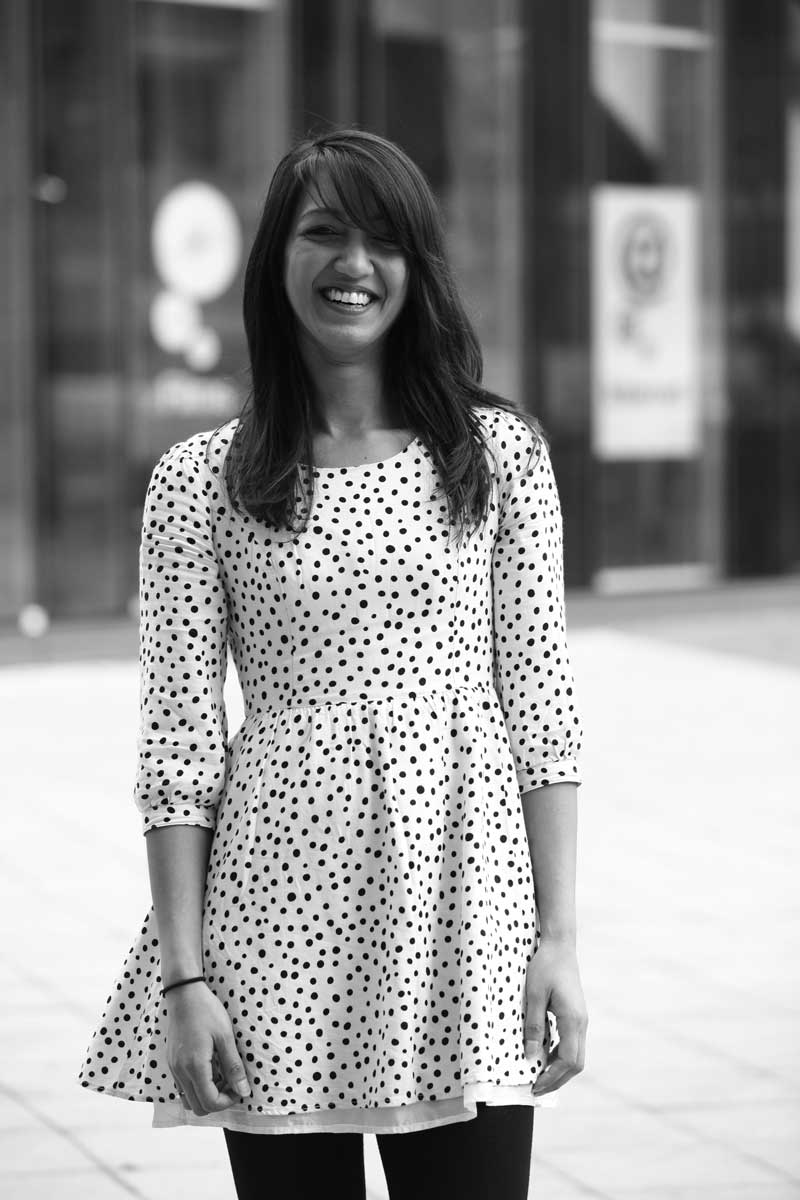
Ruki Khanom, 31, works as a Housing Officer. ‘Be grateful for what you have. Life is so precious.’